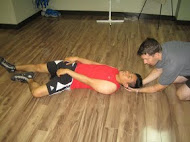
by Mikha Canon | Mar 6, 2014 | Sudden Emergency
Eclampsia is a serious, albeit rare, condition that causes seizures (convulsions) or coma in pregnant women. These seizures are of no relation to the existing brain condition, thus pregnant women who may not even have a history of seizures may develop this condition....

by Admin | Mar 5, 2014 | Featured, Sudden Emergency
Suicidal thoughts are troubling thoughts that involve killing oneself. Suicidal thoughts are usually due to feelings of hopelessness in one’s life often from stressful life situations, which may be extra disturbing if accompanies by mental illnesses, depression,...
by Admin | Mar 5, 2014 | Sudden Emergency
A hangover is a group of unpleasant signs and symptoms that occur upon waking up after drinking too much alcohol the night before. Hangovers usually lead to poor work/ school performance and increased irritability leading to conflict. The general rule is that the more...




